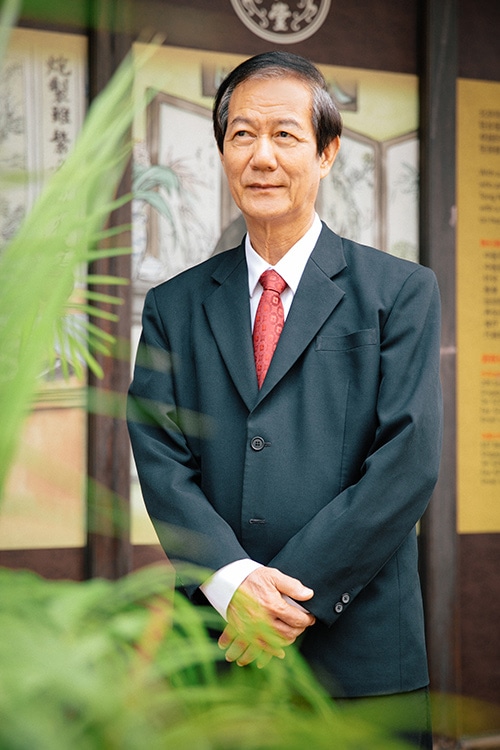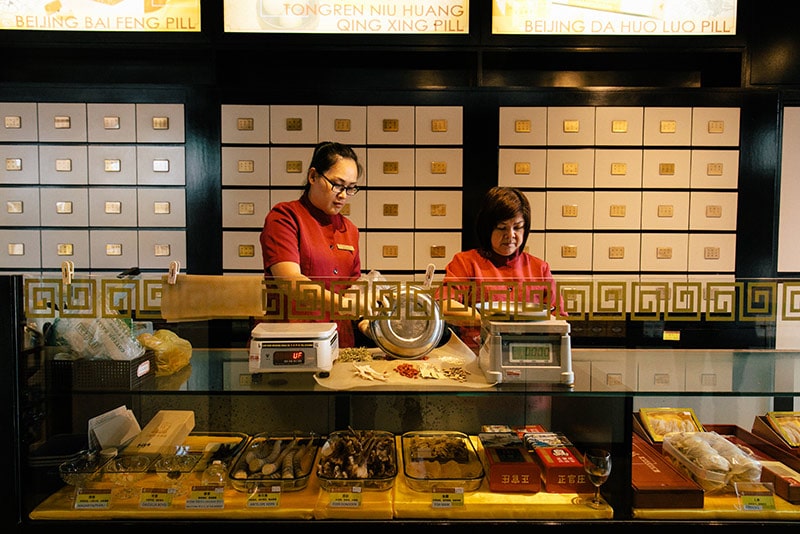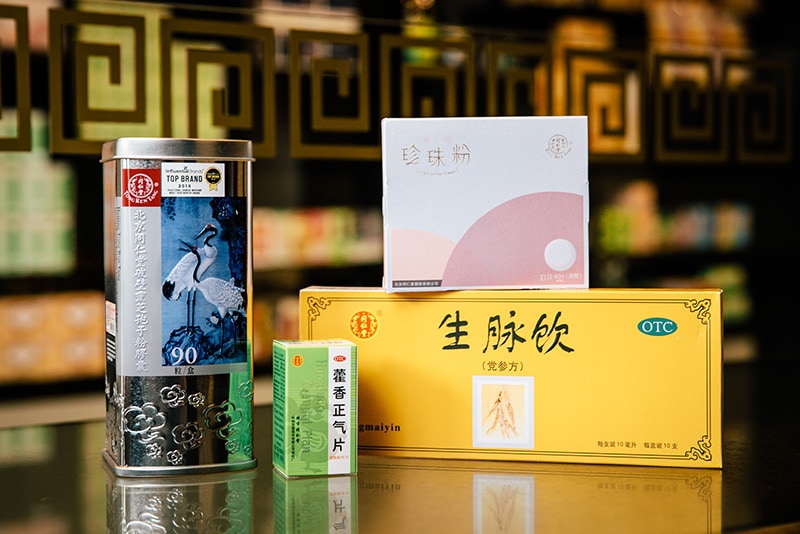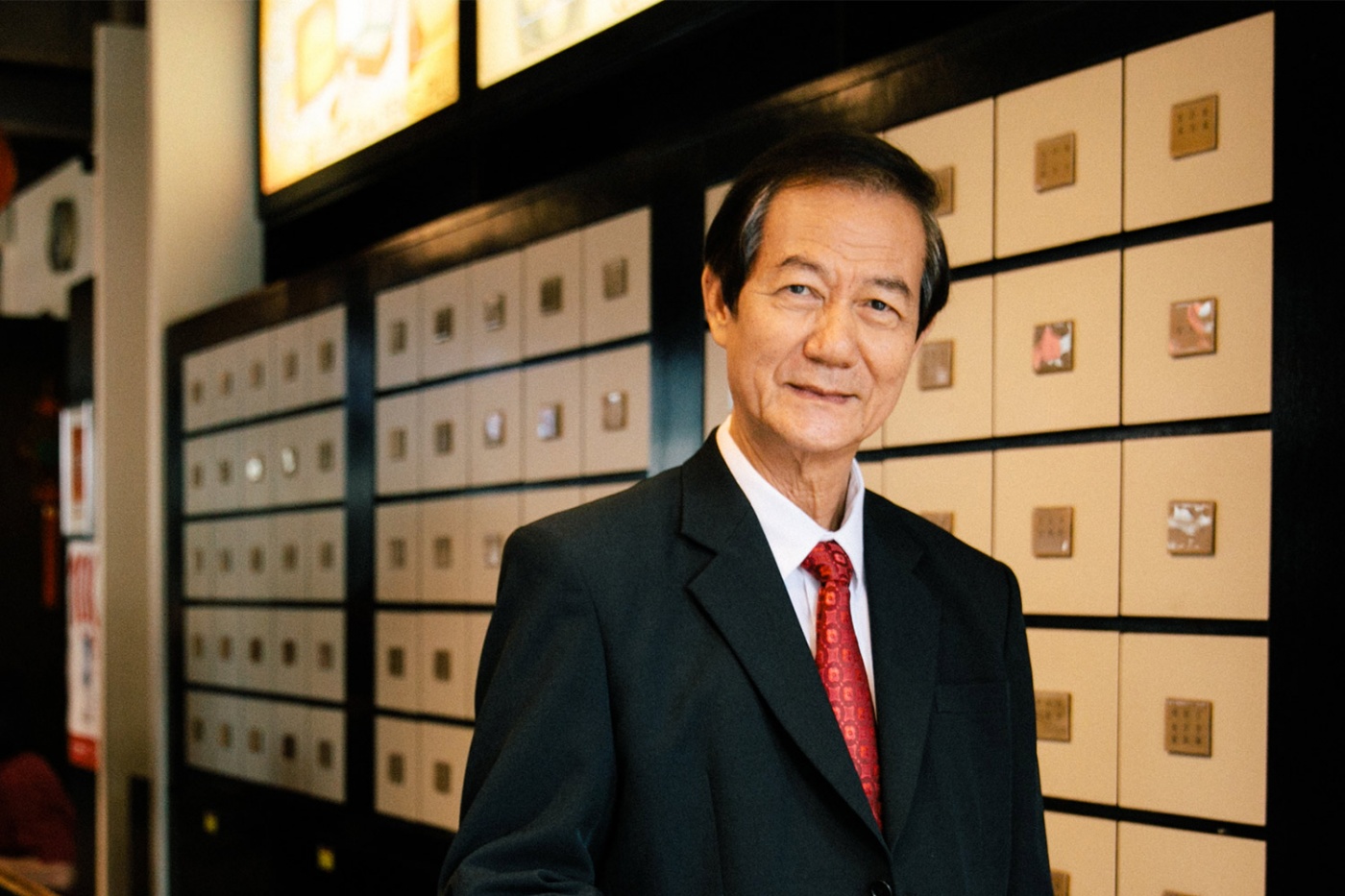The Secret to Beijing Tong Ren Tang’s 350-Year Longevity
This article is a part of our Influential Brands® 2019 series, where we highlight the most influential brands in Asia. Learn more about these brands at Brandzbeat, a video channel by Influential Brands®.
Flanking the entrance of Beijing Tong Ren Tang’s South Bridge Road outlet, two wooden panels in black with gold-painted Chinese characters carved into them stand out against the white, colonial shophouse. It’s the first thing that captures your attention, your first touchpoint with the TCM (Traditional Chinese Medicine) brand that encapsulates what this international franchise stands for and is built upon. “No compromise on cost and labour despite the complexity of processing herbal medicines. No compromise on quality and standard despite the scarcity of medicine ingredients,” reads its maxim.
Spelling out its brand philosophy that has guided and informed how each aspect of the business is run, it constitutes a large part of the reason why Tong Ren Tang is the world’s largest purveyor of traditional Chinese medicine. Established in 1669, the Beijing-headquartered household brand has lasted more than three centuries—recently celebrating its 350th anniversary in 2019—with a steep history that saw it serving eight generations of emperors during the Qing dynasty.
Not many businesses live to see such impressive longevity, particularly in this day and age where competition is fiercer than ever as retailers are popping up and shutting down faster than before. Yet, Tong Ren Tang has managed to thrive and stay ahead of the curve due to its unparalleled brand loyalty—marked by years of heritage and history.

This rock-solid reputation can also be attributed to the brand’s consistency in never compromising on its values, prioritising the quality of its products and the calibre of its services over all else. “We’re committed to our brand mottos, which include nurturing kindness and virtue from within, and building up a healthier world,” shares Mr Tan Lee Huak, the vice president of Beijing Tong Ren Tang Science Arts (Singapore) Co. Pte Ltd. “Excellent customer service and curative techniques are also crucial to develop a sense of intimacy and confidence with customers.” That’s the standard of care you’ll find at any of its branches, boutiques and clinics.
It is one thing to get to the top, but a whole new ball game to remain the king of the industry over decades of change and evolution. Tong Ren Tang certainly isn’t immune to the tides of consumer behaviour and has seen its fair share of challenges. For one, western medicine remains more widely used and accepted than TCM, especially in a cosmopolitan city like Singapore. Mr Tan explains, “Many people in Singapore, especially the younger generation, do not accept Chinese practitioners or TCM as it is said that TCM is an ancestral medical practice that isn’t backed by academic proof.”
Furthermore, as a largely traditional enterprise, it is still grappling with the proliferation of new tech and figuring out its place in a world of smarter devices, and greater interconnectivity. “The development of the TCM industry towards Internet informatisation is a general trend. Yet, it is a challenge to find young Chinese practitioners who have technological knowledge. Financial investment in Internet informatisation is another challenge,” confesses Mr Tan.

What has driven Tong Ren Tang’s sustained success is its ability to anticipate change, and not just adapt to them but lead the transformation of the industry. Always looking for opportunities to innovate, its dedication to creating new, more relevant products consistently is one of their trump cards to avoid getting disrupted by a slew of newcomers. “We pay attention to market needs and do research on health-concerned people before developing a new product,” says Mr Tan, who regularly keeps himself updated on the latest trends such as 5G technology, big data, artificial intelligence and how they play into the development of new products, business models and customer engagement strategies.
Here’s a case in point. The company has always been known for its health products—powder capsules made from sporoderm-broken Ganoderma lucidum spores that enhance one’s immunity, herbal aerosols that relieve pain and swellings, medicated plasters that activates one’s blood circulation. This year, however, it launched the “Ultra Fine Pearl Powder”, a skincare product that also relaxes the senses, benefits the liver and eyes, and relieves insomnia. It boasts a minimalist package in white and dusty pink, and comes in chic, little sachets for on-the-go use.

“To target the younger generation who are more engaged in beauty, we’ve put effort into the design of the packaging to make the product look more youthful and modern,” Mr Tan illustrates. “We have also launched a Facebook platform to promote the pearl powder.” Though the business serves a predominantly Chinese demographic with a significant presence in China and Hong Kong, it is of paramount importance to the brand not to alienate its English-speaking consumers, especially since its grand mission is to expand into more international markets.
For Tong Ren Tang, this means crafting social media content in both Chinese and English, and engaging the online community to create buzz and build a wider audience. It goes on top of its existing efforts in interacting with and providing for communities offline, be it through organising free public health talks, or offering free consultation services once a month at some of its branches to raise awareness of various diseases, their causes and cures, and the importance of developing a health plan.
Inscribed as a National Intangible Cultural Heritage in 2006, the listed state-owned business’s ultimate mission is to spread the “TCM culture to the world”. “We endeavour to pass the knowledge and craftsmanship of medicine preparation to the next generation, to drive the modernisation of TCM and explore its application,” says Mr Tan. “By taking a culture-first approach in introducing medicine through treatments, we aim to expedite the internationalisation of TCM.” All in the name of creating a healthier, more sustainable world to live in.


